videos of manila before world war two
Glowing Citation of Francis Pasion's Jay from Nigel Andrews, The Financial Times
Movie bliss-out means business
By Nigel Andrews
The 65th Venice Film Festival delivers a thrill to the eyes before a film has even been seen. As if leaping from a screen into the future, three sculpted lions are seen part-emerged – a head, front and feet here, head and claws there, face only of the last in sequence – from a giant white cloth covering the front of the Palazzo del Cinema.
Spectacular? Yes. Symbolic? That too. Clearly, say the lions, those in charge of this dream event in the film calendar, a movie bliss-out on a lagoon, have their more active dream for the future. A foundation stone was laid on day two for a new cinema palace planned for 2011. It will bring fresh eminence to the Mostra del Cinema. It will tell the rival Rome Film Festival to get lost or get busy catching up. And if we ever thought Venice was a mere folderol, a solace to ease the film junkie’s long withdrawal pains after Cannes, director Marco Müller, who has signed a new four-year contract, means business.
Müller must cater for a world in love with audiovisual saturation and cultural completism. Does that mean the days of wine and roses are over? We who love the Lido gig’s reflective pace hope not. Films are allowed to breathe and blossom here: even a slapstick-comedy opener such as the Coens’ Burn After Reading. Just as the crowds could almost touch George Clooney and Brad Pitt during the stars’ gala wave-and-walk-through on first night, critics are allowed up-close dalliance with the film’s fine-tuned fun – a plot about CIA spies accidentally rumbled, then methodically blackmailed, by a gymnasium assistant (Frances McDormand) with dreams of cosmetic makeover – in a festival where quality isn’t crowded out.
 Detractors might say this has its downside. We’re happy enough to linger over the Coens, with a smart cast – Clooney (left) and Pitt showing their comedy chops, McDormand’s naïve-as-a-fox heroine (memories of Fargo’s Marge Gunderson), John Malkovich and Tilda Swinton in expert support – being led through a movie where every line counts and every look counts double. Hollywood made us medium-happy, too, with Guillermo Arriaga’s The Burning Plain (pictured below), a subtly epic tale of two women living different lives in different times, with Charlize Theron gnawed by slowly revealed guilts and griefs in present-day Oregon while Kim Basinger finds a tragic love-rapture in sunnier, earlier Mexico. (Are the two women connected? No plot spoilers from me.)
Detractors might say this has its downside. We’re happy enough to linger over the Coens, with a smart cast – Clooney (left) and Pitt showing their comedy chops, McDormand’s naïve-as-a-fox heroine (memories of Fargo’s Marge Gunderson), John Malkovich and Tilda Swinton in expert support – being led through a movie where every line counts and every look counts double. Hollywood made us medium-happy, too, with Guillermo Arriaga’s The Burning Plain (pictured below), a subtly epic tale of two women living different lives in different times, with Charlize Theron gnawed by slowly revealed guilts and griefs in present-day Oregon while Kim Basinger finds a tragic love-rapture in sunnier, earlier Mexico. (Are the two women connected? No plot spoilers from me.)
But this year’s Venice line-up sagged a little early on between high points. We had time to ponder too many mixed-nation thrillers grimy with hokum. Barbet Schroeder’s Inju follows a French crime writer (Benoît Magimel) to Japan to duel with a serial-killing psychopathic rival in a film of popcorn Schadenfreude. Yu Likwai’s Plastic City is set in São Paulo and promised a Chinese visionary’s insight into Brazilian social meltdown. Yu is the regular cinematographer of leading director Jia Zhang-ke. But the film explodes into multiple fragments, part gangster movie, part identity drama, part lens artist’s visual brainstorm.
As I write, steadiness is creeping back into the competition. Halfway, the best in show is a low-budget tale of obsession by an Iranian working in the US. Proving that international mixes can work, Amer Nedari’s Vegas: A True Story presses our faces to the window of a poor family’s bungalow on the edge of the Nevada Babylon – the Strip a garish shimmer in the background – as their slender fortunes turn to calamity. Sold the notion that a suitcase full of millions lies under their backyard, father, son and sceptical mum heave to with spades and mattocks. The loot keeps eluding them; the garden keels into ruin; the house becomes a mining camp, filthy with dust and despairing hope.
Naderi made an early gem of new Iranian cinema, The Runner, before relocating to America. Vegas may prove his naturalisation project, a raw tragedy in the tradition, if not with the bank-breaking budget, of Stroheim’s Greed. By the end an unknown cast has become a trio of indelible faces, a patch of land a glimpse of purgatory.
 Curios are starting to crowd up for the Golden Lion’s attention. Turkey’s Milk, the growing-up tale of a poet, has a gobsmacking opening. A cauldron of milk, a woman hung upside-down, a live snake extracted from her mouth. Whenever this scene is shown there should be a sales lady in the auditorium with a tray of smelling salts. France’s L’Autre is more long-distance in its weirdness. A looks-proud, independent-minded thirtysomething, played by the mesmerising Dominique Blanc (face of Jeanne Moreau mixed with Bette Davis), discovers she is a fraction too late to throw over a stable relationship for the fugitive dream of freedom and love on the hoof. She becomes – perhaps she always was – borderline psychotic and over-the-border delusional. When you see your Doppelgänger on a passing train, it is time to settle down or hire a shrink.
Curios are starting to crowd up for the Golden Lion’s attention. Turkey’s Milk, the growing-up tale of a poet, has a gobsmacking opening. A cauldron of milk, a woman hung upside-down, a live snake extracted from her mouth. Whenever this scene is shown there should be a sales lady in the auditorium with a tray of smelling salts. France’s L’Autre is more long-distance in its weirdness. A looks-proud, independent-minded thirtysomething, played by the mesmerising Dominique Blanc (face of Jeanne Moreau mixed with Bette Davis), discovers she is a fraction too late to throw over a stable relationship for the fugitive dream of freedom and love on the hoof. She becomes – perhaps she always was – borderline psychotic and over-the-border delusional. When you see your Doppelgänger on a passing train, it is time to settle down or hire a shrink.
On the Venice fringe there have been two films to cheer: an Italian reconstruction and a Philippine satire. Pier Paolo Pasolini’s 1963 La Rabbia (‘Rage’) was a potion of screen rhetoric, never before seen in the undiluted form the director intended. The original producers wanted to “balance” PPP’s jeremiad against class and capital – which becomes much more as the winds of prophecy fill his sails – with a rightwing film-essay from author Giovanni Guareschi. The latter is now discarded. Giuseppe Bertolucci (Bernardo’s brother) has re-assembled the old material, added some never seen, and puts before Italy and the world Pasolini’s true original rage, a scintillating montage of 20th-century news footage – from Mussolini to Marilyn Monroe – unified and signposted by a genius’s vision.
Perfidious media managers; treachery in the name of truth. They are everywhere today, not least in the lies of “reality TV”. Francis Xavier Pasion’s Jay, from the Philippines, is an acutely funny tale of intrusive telly reporters, bearing down on a family bereaved by a gay son’s murder to make their grief part of a nation’s infotainment. They start by poking a lens at the family’s faces as they learn the news; they end by getting them to act, or re-enact, every emotional convulsion that needs a second, third or umpteenth take. The remuneration? The reporters will help find the son’s killer. By the time they do, even the murderer, we know, will be signing release forms and hungrily securing his 15 minutes of fame.
Labels: francis pasion, jay, manila, old manila, philippine cinema








































































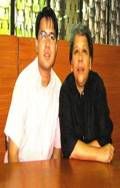
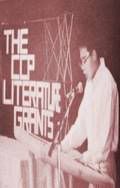





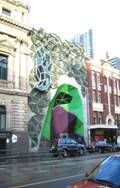



















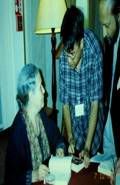
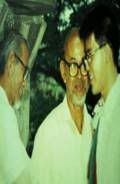





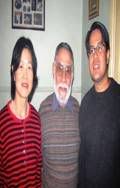


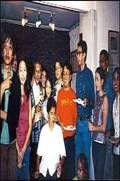
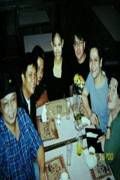

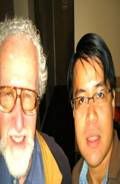



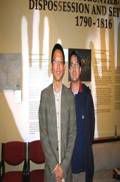


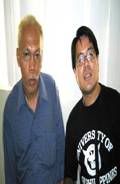

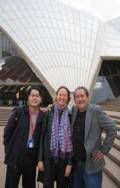




















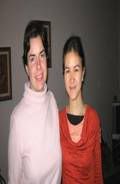



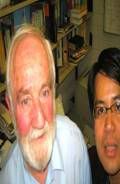















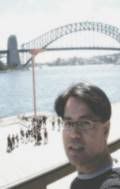







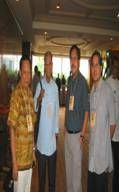
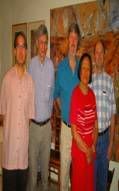



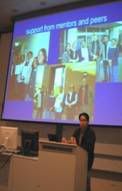

















1 Comments:
really cool!!!
Post a Comment
<< Home